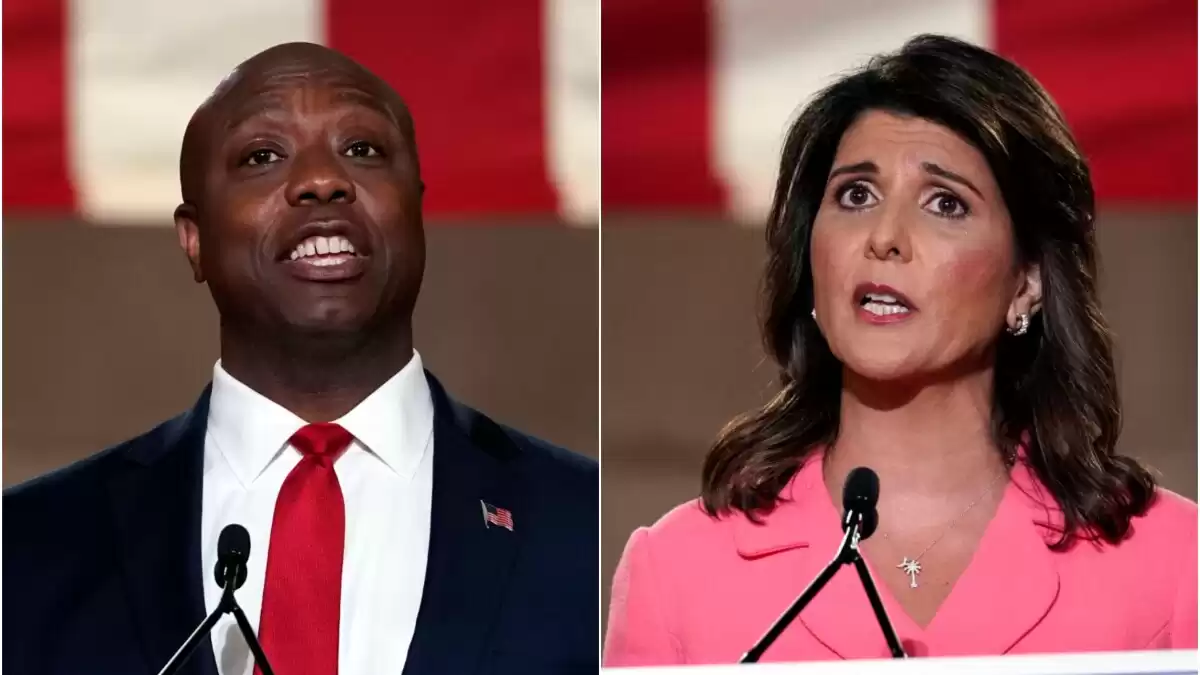Republican Debate: Mike Pence, Tim Scott, and the Necessity of Implementing a Federal 15-Week Abortion Law
Debate over abortion stances of Trump, DeSantis, and other GOP hopefuls in 2024 sparks controversy and divides opinions.
Title: Analyzing the Divergent Perspectives on Abortion: Trump, DeSantis, and the 2024 GOP Contenders
Introduction:
In the realm of Republican politics, the abortion debate has become a pivotal issue that has sparked disagreement among potential 2024 GOP candidates. During the first GOP debate, Governors Nikki Haley and Doug Burgum voiced their opposition to a proposed 15-week abortion ban at the federal level, while former Vice President Mike Pence and Senator Tim Scott supported it. This article will delve into the contrasting viewpoints of these individuals, dissecting their arguments and evaluating their validity.
The Moral Imperative: Scott and Pence's Stance:
Senator Tim Scott and former Vice President Mike Pence have taken a firm stand in favor of the 15-week abortion ban. Their unwavering support stems from the belief that it is morally wrong to permit states to allow abortions in the eighth month of pregnancy. Scott aptly points out the immorality of such a practice, emphasizing that a civilized nation should never condone it. By advocating for a federal ban on late-term abortions, Scott and Pence demonstrate their commitment to protecting the sanctity of life.
The Constitutional Conundrum: Burgum's Argument:
Governor Doug Burgum's position on abortion diverges from that of Scott and Pence. He argues that the Constitution delegates the regulation of abortion to the states, granting them the authority to determine their own policies. However, this perspective fails to acknowledge that Congress possesses the right to safeguard unborn children from abortion. Drawing an analogy to the federal minimum wage, where Congress sets a baseline that states can surpass, it is sensible for Congress to enact a ban on late-term abortions. Simultaneously, states should retain the power to decide which first-trimester abortions to prohibit, while allowing for specific exemptions.
The Political Viability: Haley's Contentions:
Governor Nikki Haley contends that a 15-week abortion ban is politically untenable. While her argument acknowledges the successful portrayal of such a bill as a "national abortion ban" by Democrats and the media, she fails to recognize the nuanced public sentiment on the matter. The average American supports first-trimester abortions but advocates for restrictions beyond that point, except in exceptional circumstances. Haley's assertion disregards the fact that a significant majority of voters, as highlighted by Harvard's Harris Poll, believe that abortions after 15 weeks should be illegal. Only a minority of voters, less than one-third, support the legality of abortions beyond that threshold.
Conclusion:
The abortion debate has become a significant point of contention among potential 2024 GOP candidates, with stark differences in their perspectives. While Scott and Pence argue for a federal ban on late-term abortions based on moral grounds, Burgum highlights the constitutional authority of states while supporting a federal ban on late-term abortions. In contrast, Haley questions the political viability of a 15-week abortion ban, failing to recognize the widespread public support for such restrictions. As the debate continues, it is crucial to consider the diverse perspectives and engage in thoughtful discourse to shape policies that align with the values and aspirations of the American people.











Comments on Republican Debate: Mike Pence, Tim Scott, and the Necessity of Implementing a Federal 15-Week Abortion Law